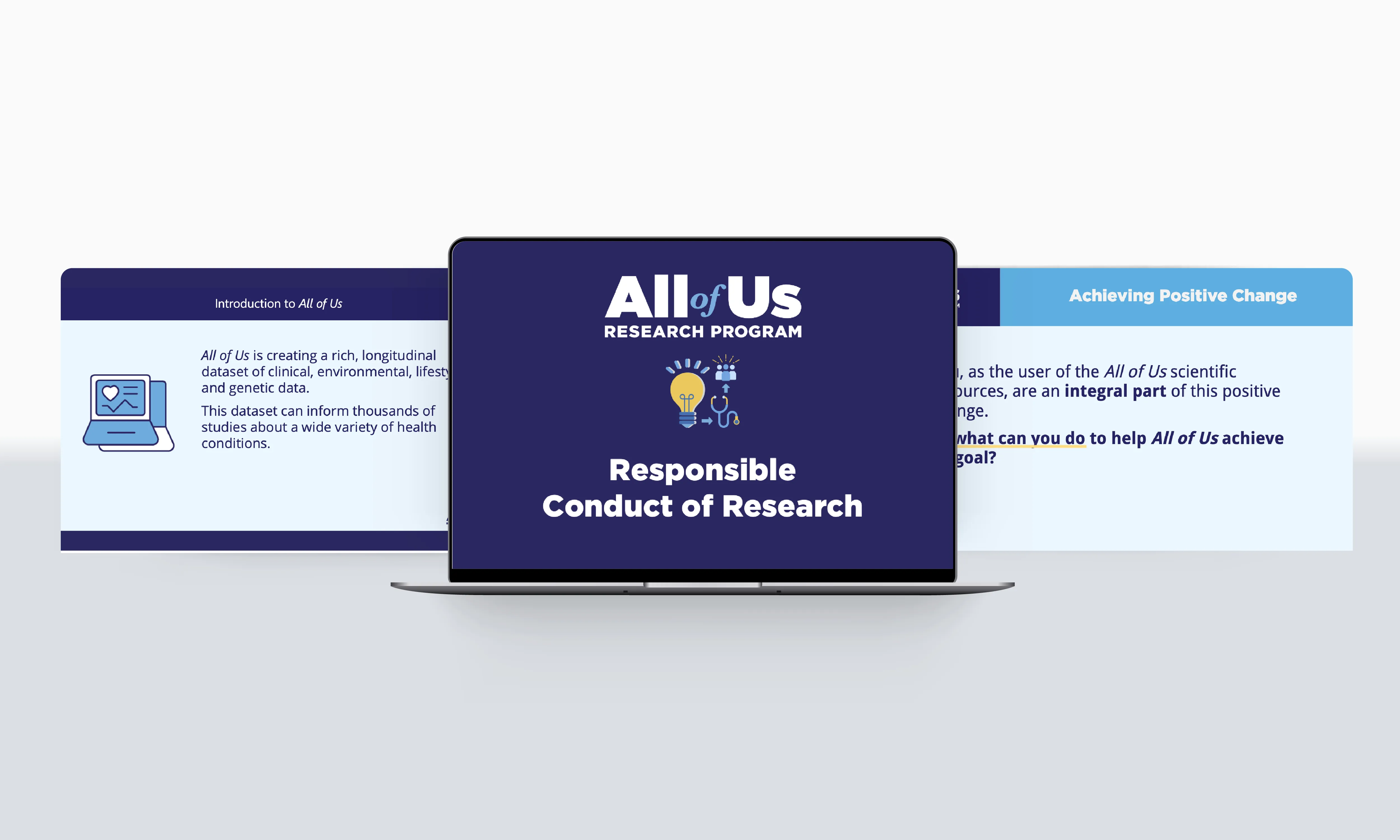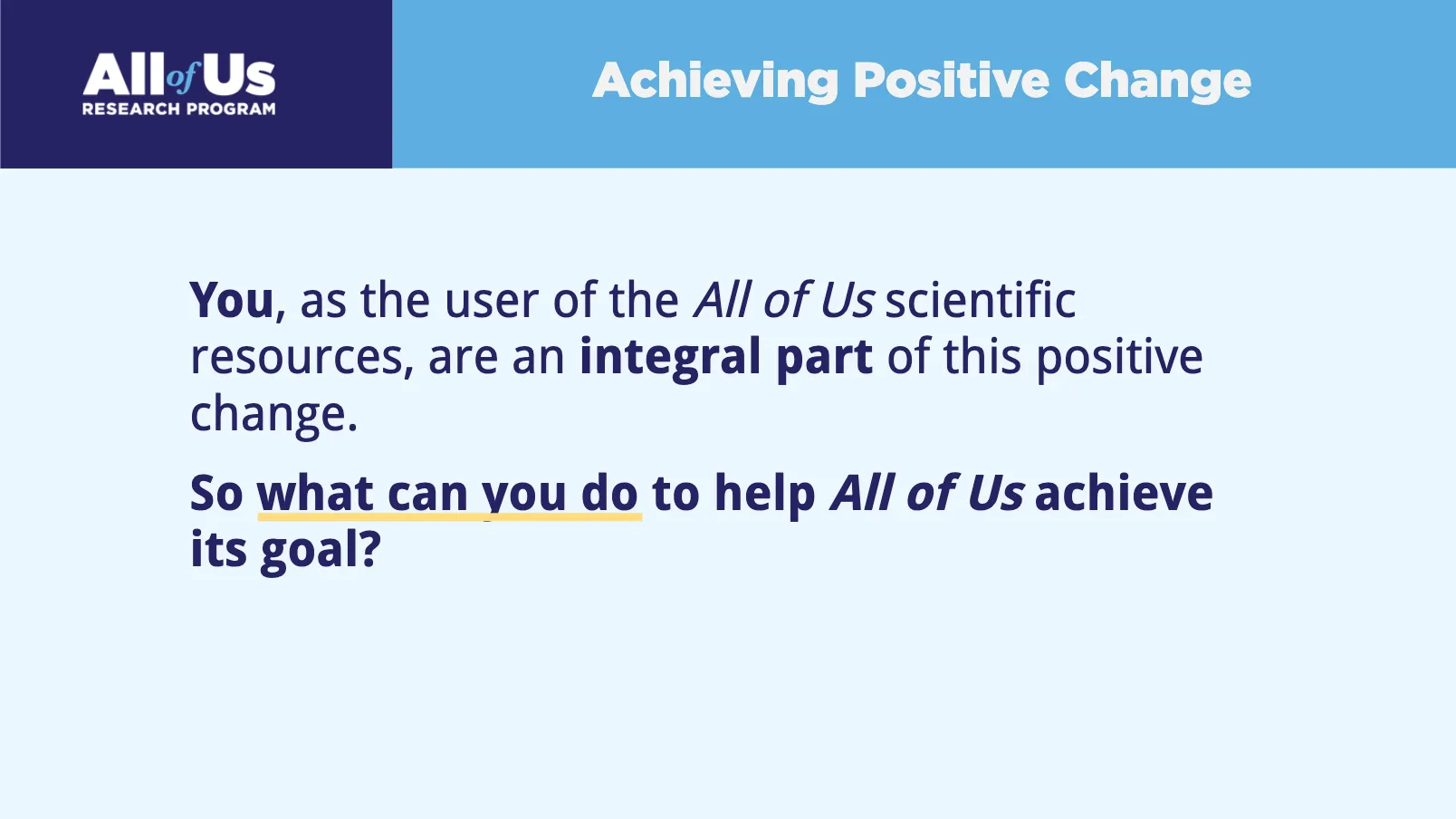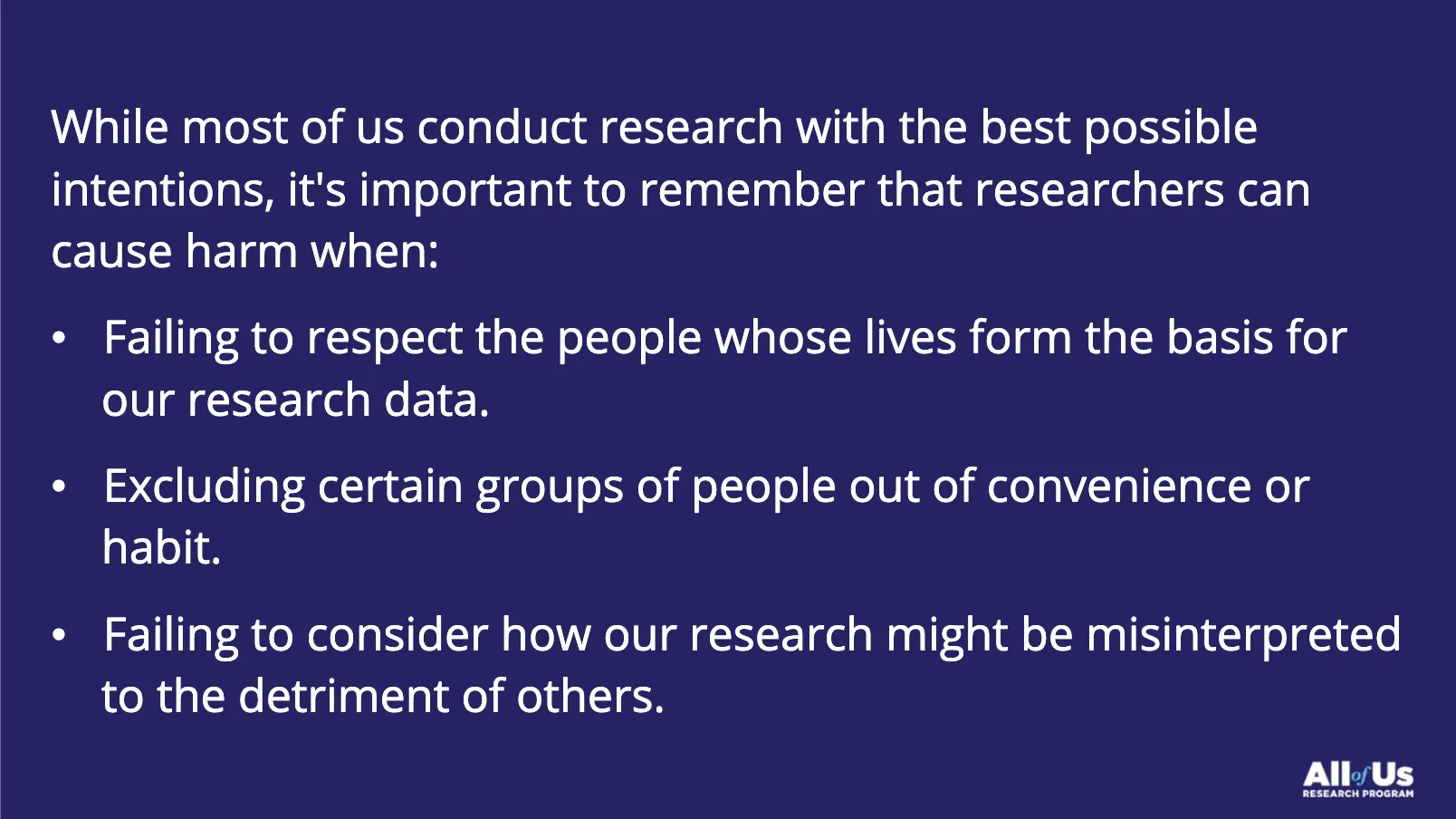From Red Tape
to Real Impact
Compliance training focused on
supporting learner's aspirations
not on thwarting villian's plans.



At the heart of the All of Us Research Program is a core belief:
To uphold this principle, the program required researchers to go beyond the usual knowledge of ethical principles to considerations like:
As the program prepared to release its Controlled Tier dataset containing de-identified genetic data, an urgent need emerged:
While traditional human-subjects research training was available, many researchers viewed these courses as bureaucratic obligations rather than meaningful learning experiences.
Through consultation with expert partners, we were able to define the program's main objective for the course:

At the heart of the All of Us Research Program is a core belief:
To uphold this principle, the program required researchers to go beyond the usual knowledge of ethical principles to considerations like:
As the program prepared to release its Controlled Tier dataset containing de-identified genetic data, an urgent need emerged:
While traditional human-subjects research training was available, many researchers viewed these courses as bureaucratic obligations rather than meaningful learning experiences.
Through consultation with expert partners, we were able to define the program's main objective for the course:

Explore the biases, pressures, and systemic factors that have lead researchers to make unethical decisions.
Used case studies and interactive decision-making activities to challenge researchers to apply ethical reasoning in real-world research situations.

Explore the biases, pressures, and systemic factors that have lead researchers to make unethical decisions.
Used case studies and interactive decision-making activities to challenge researchers to apply ethical reasoning in real-world research situations.
10K+
Learners
Since 2020, 21K+ researchers have been given access to the course as part of their application to access All of Us data. About half of all applicants have become engaged learners.
98%
Completion
Of those who engaged with the course, almost all completed the course and passed the rigorous final assessment.
Only 4
Retakes (0.05%)
Only 4 of the 9023 learners who completed the course between 2020 and 2024 were required to retake it due to policy violations: strong evidence of the course's lasting impact.